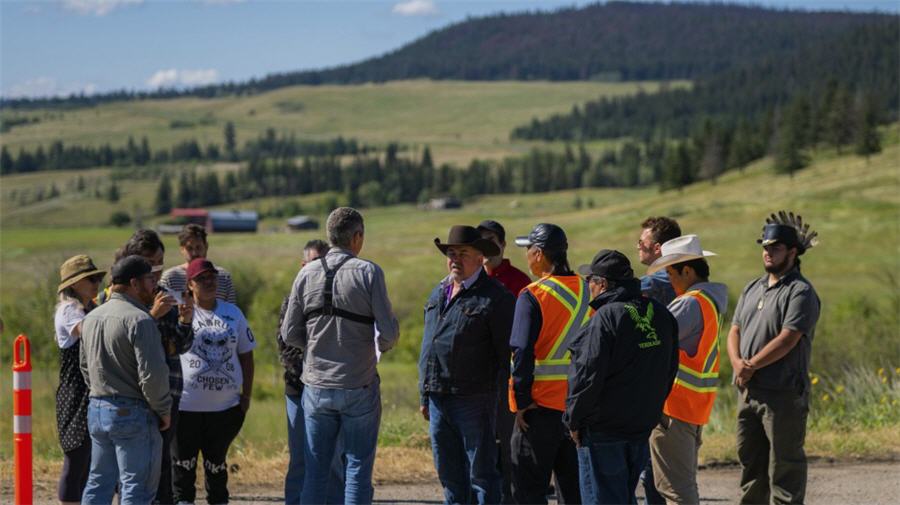First Nation blockades workers at British Columbia gold-copper project

The Tsilhqot’in First Nation have set up a “peaceful protest” on a road near Williams Lake, British Columbia and have turned back a work crew that had planned to move in heavy equipment to conduct drilling for the New Prosperity mine.
To date, the Tsilhqot’in have been fighting the Taseko Mines Ltd. (TSX:TKO) New Prosperity copper mine through the courts.
The Tsilhqot’in made history in 2014, when the Supreme Court of Canada recognized that the Tsilhqot’in had proven title over a small amount of their traditional territory, and wider aboriginal rights extending over territory outside of the title area.
The Tsilhqot’in made history in 2014, when the Supreme Court of Canada recognized proven title over a small amount of their traditional territory
But the courts have also recently ruled against them in their efforts to halt geotechnical work related to the New Prosperity mine, so on Tuesday, July 2, the Tsilhqot’in escalated the fight to a peaceful protest, and stopped stopped work crews from moving heavy equipment into the area.
The mine project is still in something of a legal limbo. It has a provincial environmental certificate approving the copper mine, and also has a drilling permit from the province.
But it doesn’t have a federal environmental certificate. The Canadian Environmental Assessment Agency under the Stephen Harper Conservative government twice rejected the mine’s approval.
Taseko is fighting that decision at the federal court level. Meanwhile, as part of its provincial approval, the company has the authority to conduct geotechnical work required by the provincial environmental certificate.
In mid-June, the Supreme Court of Canada dismissed an appeal by the Tsilhqot’in over a drilling permit issued by the provincial government.
The Tsilhqot’in assert aboriginal rights in the area where the New Prosperity mine would be built in an area called Fish Lake, known by the Tsilhqot’in as Teztan Binay. The Tsilhqot’in say Fish Lake has cultural and spiritual values that they intend to protect against mine development.
“This project is dead,” Tsilhqot’in Chief Joe Alphonse said in a press release. “It cannot be built. Yet the company wants to come in and tear up a place that is as sacred to us as a church.”
“B.C. needs to understand that TML (Taseko Mines Ltd.) does not have and will not secure the consent of the Tŝilhqot’in Nation, and must intervene to prevent the conflict from getting worse,” said Russell Myers Ross, vice chairman of the Tsilhqot’in National Government.
Asked if the company will seek a court injunction against the Tsilhqot’in, Brian Battison, a spokesman for the company said in an email: “That is one of the options we are contemplating at the moment, however no decisions have been made by the company on what our next (steps) will be.”
(This article first appeared in Business in Vancouver)
{{ commodity.name }}
{{ post.title }}
{{ post.date }}




Comments